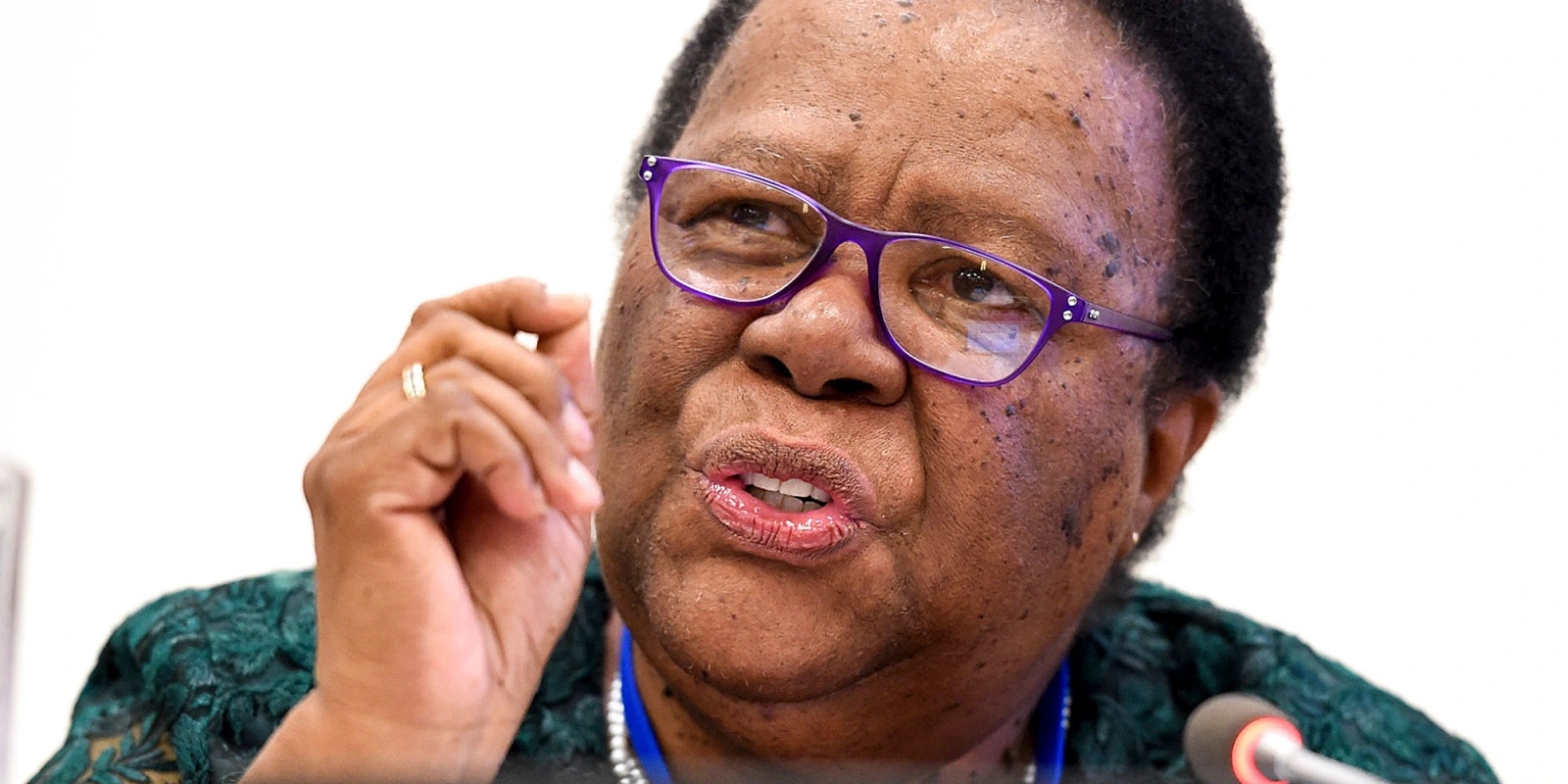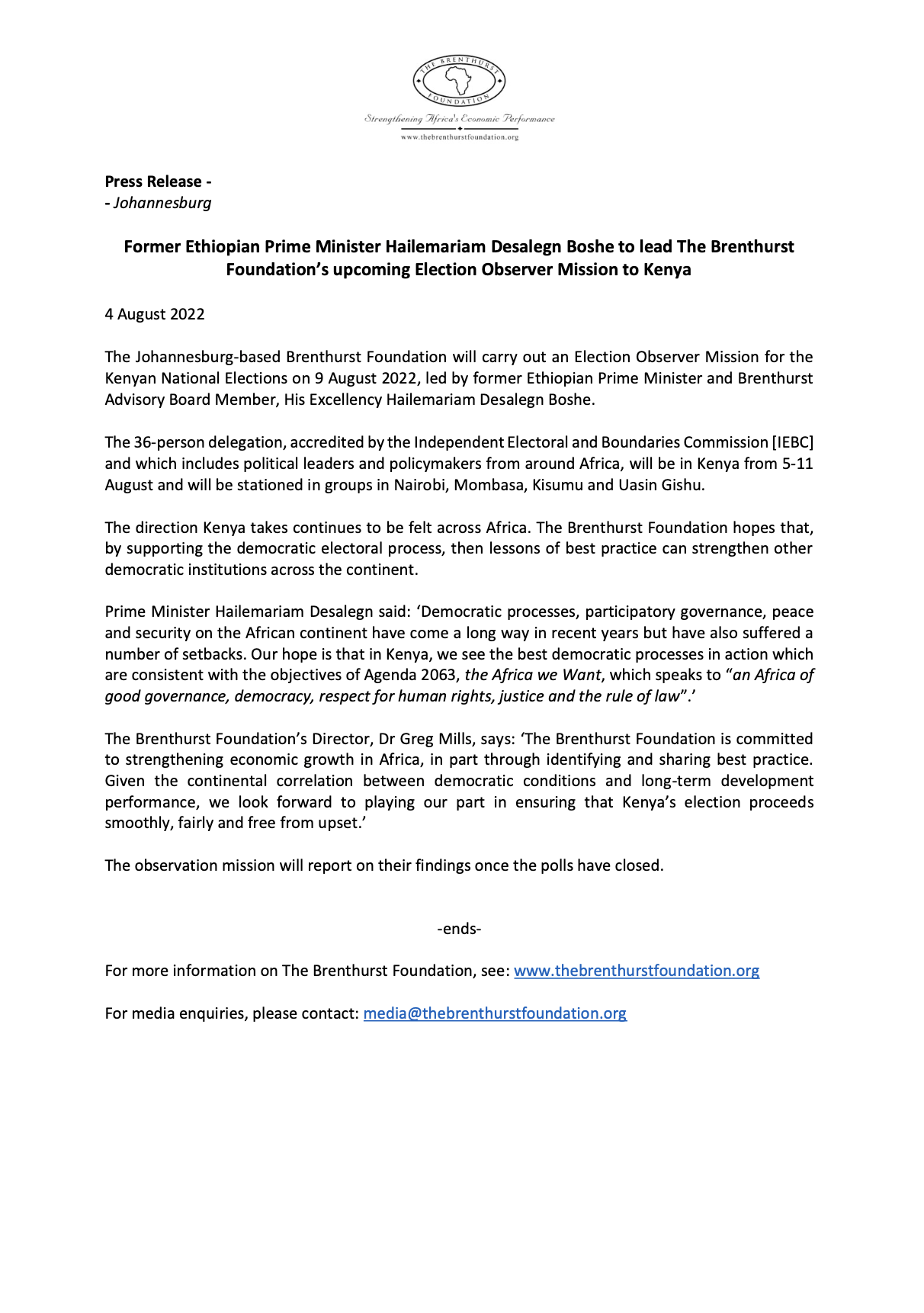News
South Africa's favouritism towards autocratic nations poisons its recipe for democracy
If the authors of the 'National Interest' policy were serious, they would have placed democracy in its rightful place within the constitutional furniture and made it the cornerstone of foreign policy.

Former Director, The Brenthurst Foundation

Former Research Director, The Brenthurst Foundation

What is in South Africa's National Interest? South Africa's Department of International Relations and Co-operation (Dirco) has attempted to define this and its meaning for foreign policy in a new policy framework, 'South Africa's National Interest and its Advancement in a Global Environment'.
Running to 33 pages, it is a brave attempt to do the impossible: Marry inspiration from South Africa's boldly democratic constitution, with the country's desire to do nothing to defend democracy and its institutions abroad.
This is achieved by a sleight of hand. The document repeatedly claims the policy draws its inspiration from the constitution, but it chooses the parts of the constitution that are broad enough to allow it to stand with countries that patently don't support democracy.
“South Africa defines its National Interest premised on the values and ideals as enshrined in its Constitution and informed by the needs of its people. These include the eradication of the legacy of apartheid and overcoming the triple challenges of inequality, unemployment and poverty,” it states in its introduction.
Democracy is mentioned later on: “As a country, South Africa upholds the values of democracy as a system of governance that provides for an open society, which allows its people to express themselves on who and how to be governed. It is similarly a political aspiration that is firmly protected and promoted on the African continent and beyond.”
The trouble for the authors with democracy is that it does not chime nicely with the government's flirtation with distinctly undemocratic states such as Zimbabwe to the north and Russia, whose invasion of Ukraine it has decided (after a minor kerfuffle) not to condemn.
About the kerfuffle: There was a brief moment on 24 February when Dirco, reacting to the Russian invasion boldly stated: “South Africa calls on Russia to immediately withdraw its forces from Ukraine in line with the United Nations Charter, which enjoins all member states to settle their international disputes by peaceful means in such a manner that international peace and security, and justice are not endangered.”
It was doing the obvious — taking a stand against the unprovoked and violent invasion of a democracy by an autocratic state.
But, whoever crafted that statement did not properly understand the peculiar definition of the 'national interest' that was materialising in the bowels of Dirco (or Luthuli House). The statement was quickly walked back and by the time South Africa abstained from voting for a UN resolution condemning the invasion, it had become a 'neutral' observer calling on both sides to cease hostilities.
The democracy point is important because democracy is not just one of several nice ideas enumerated in the constitution. It sits at the heart of that document and is the foundation on which the entire constitutional edifice stands.
An open, transparent, accountable elected government is a necessary, but not a sufficient precondition for the delivery of a better life for all. For that to happen, government has to do its job. Over the last decade and a half and particularly under the stewardship of Jacob Zuma, the government has not done its job and democracy has been somewhat of a nuisance standing in the way of accumulation.
Let us not forget the proposed 'media tribunal', attempts to securitise freedom of expression, the assault on the previous Public Protector, Thuli Madonsela, and the appointment of her apparatchik successor, Busisiwe Mkhwebane. There were those ANC 'meetings' with judges to berate them for daring to take it to task. And there was cadre deployment which continues to hobble the delivery of services.
Fortunately for the country, many of these efforts to hollow out democracy were thwarted by the constitution and its defenders in civil society, among opposition parties and in the media.
That period of brazen theft is now hopefully behind us, although such optimism must be carefully couched.
For the deleterious effect of these assaults on democracy linger — a public service unable to deliver services effectively, government machinery that stands in the way of job creation and a continued populist assault on democratic values.
If the authors of the 'National Interest' policy were serious, they would have placed democracy in its rightful place within the constitutional furniture and made it the cornerstone of foreign policy. But they didn't. While democracy is vital to South Africa, it is apparently not necessary in other countries with whom we wish to be friends for opaque reasons.
Perhaps the authors agree with Lenin who stated: “It is true that liberty is precious; so precious that it must be carefully rationed.”
Of course, if democratic accountability were to be accorded its rightful place, there would be consequences. The aforementioned flirtations with Zimbabwe and Russia would not be able to continue and the ANC would lose the money it is given by a Russian oligarch.
Far from being the neutral arbiter of global conflict, the policy suggests South Africa aligns itself with those striving to “challenge the predominance of the Western powers and the liberal international economic order.” This is more or less what Russia, North Korea, Zimbabwe and Cuba see as their mission. It follows that South Africa prefers and promotes an alternative, illiberal world order and is intent on undermining the West. If South Africa's lack of support for democracy, its preference for autocrats, and its voting patterns in the UN were not sufficient hints, you have now been warned.
The document says: “Thus far, the developing countries have used their growing influence and their numbers to advocate for collective action, especially in demanding an increased role in the decision-making echelons of international organisations. These new actors are now in a position to challenge the predominance of the Western powers and the liberal international economic order.”

It is an odd approach for a country which claims to be proudly democratic. Like it or not, it is an objective fact that the West's political systems have much more in common with South Africa than do those of, say, Russia or China. There are a growing number of populists venting their spleen but some of them, such as Donald Trump, have been defeated in democratic elections as the system does its job.
Minister Naledi Pandor has bemoaned threats to punish African countries that did not toe the Western line on Ukraine on the grounds that this is their sovereign right. Not only did she put sovereignty before democratic principles, but she ignored the reality that this is a two-way street: national choices can have international consequences.
This is not to say that South Africa ought to align itself with the West. It would be wise for it to live up to its promise not to align itself with any power bloc. It should, however, align itself with democracy and against assaults — particularly violent ones such as that undertaken by Russia — on fellow democracies. The West does not own democracy; it belongs to the world of free peoples. Surveys have shown time and again that it is the political system preferred by Africans across the continent.
It is conveniently forgotten that more African countries voted to condemn Russia's invasion than abstained or voted against the UN resolution. Yet no one asks if South Africa was out of step with the continent.
Perhaps the real issue is that by not voting to condemn Russia at the UN, South Africa has alienated itself from its fellow Africans. After all, Benin, Botswana, Cabo Verde, Chad, Comoros, Côte d'Ivoire, Democratic Republic of the Congo, Egypt, Gabon, Gambia, Ghana, Kenya, Lesotho, Liberia, Libya, Malawi, Mauretania, Mauritius, Niger, Nigeria, Rwanda, Sao Tome and Principe, Seychelles, Sierra Leone, Somalia, Tunisia and Zambia all voted to condemn the invasion.
It is notable, too, that most of the group of 27 African countries that voted for the UN resolution calling for Russia to halt its invasion and withdraw its forces from Ukraine, were western aligned democracies. Most of the 17 African countries that abstained or voted against the resolution were, with a few democratic exceptions including South Africa and Namibia, authoritarian or hybrid regimes.
If 'Pan-Africanism' is a key marker of our policy, we missed a profound moment of African solidarity against this colonial invasion and an opportunity to underscore South Africa's commitment to defending democracy and the sovereignty of a fellow democratic nation.
The problem with 'South Africa's National Interest and its Advancement in a Global Environment' is that it suffers from two infections which plague the ANC: A desire to cosy up to authoritarians and the default to avoiding making decisions.
'To govern is to choose' was Pierre Mendes-France's maxim when Premier of France in the 1950s. It is axiomatic that failing to choose is failing to govern.
This article originally appeared on the Daily Maverick. [Photo: Flickr / GCIS]

